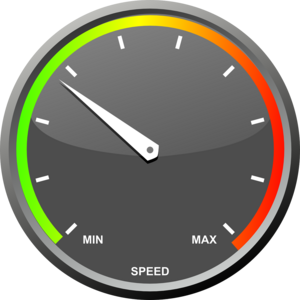Nieuws van bedrijven
Interview with the Chairman and Chief Executive Officer of Veolia, Antoine Frérot
![[Translate to Néerlandais:] [Translate to Néerlandais:]](https://aws-a.medias-ccifi.org/fileadmin/_processed_/7/1/csm_Foam_YT__26__fc95d490f7.png)
What are your takeaways from 2020, the first year of Veolia’s new strategic plan?
What stands out most clearly from this turbulent year disrupted by the coronavirus pandemic and the accompanying economic crisis, is our company’s excellent resilience, responsiveness and ability to bounce back. These exceptional circumstances were matched by our company’s equally exceptional reaction. This is reflected in the annual financial statements. At €26 billion, our revenue remained at a high level, with a return to growth in the fourth quarter.
Our EBITDA came to €3.6 billion, exceeding the revised target we had set at the start of the pandemic, and at €415 million, the current net income Group share remained largely positive despite the extent of the recession that most countries in the world experienced. The measures taken at the start of the crisis enabled our Group to overcome the consequences of the crisis and trend positively again in less than nine months. Our performance in the third and fourth quarters of 2020 exceeded our 2019 performance for the same periods.
How do you explain the fact that Veolia managed to pull through the economic and health crisis so successfully?
First, the nature of our businesses, as they provide everyday life essentials, whether for urban areas or businesses: during a crisis or in normal times, those customers still need water and heating, and waste and wastewater must be collected and treated. Second, our company’s responsiveness in extreme events, its inventiveness in solving completely unprecedented problems, and its boldness in countering the uncertainty created by the crisis.
Three guiding principles helped us through this situation: ensure service continuity, protect our employees and mitigate the impact of the recession on our results insofar as possible. For example, as a result of the Recover & Adapt additional savings plan we rolled out, our Group ultimately saved €550 million in costs compared with the €250 million initially expected. I would add a third, more fundamental reason that underpins all the rest: our employees’ exceptional engagement. They did their utmost to continue providing our services during this difficult period, despite the organizational disruption here and there due to the crisis. They are keenly aware of their tasks and were focused squarely on fulfilling them, which they successfully did.
Despite the crisis, was your Group able to maintain its sales & marketing dynamic?
Yes, 2020 saw numerous successes helping pave the way for the future. Our sales & marketing effort was vigorously maintained with a focus on new businesses which will provide new areas of growth for our company in the near future. A number of the contracts we won in 2020 clearly reflect our strategy, including the acquisition of the right bank district heating network in Prague, in the Czech Republic; the creation in Japan of a joint venture with Mitsui and 7-Eleven to build a new PET plastic recycling plant; the acquisition of Osis in France, which specializes in maintaining wastewater networks and facilities; the technological partnership with Solvay to develop a circular economy for electric vehicle batteries, a rapidly growing business given that the fleet of electric vehicles will rise from today’s eight million to more than 110 million by 2030; the agreement with General Electric for recycling onshore wind turbine blades; and the contract to treat process water at the Pfizer medication plant in Freiburg, Germany.

What is the status today of your Impact 2023 strategic plan following the coronavirus pandemic?
Despite the upheaval caused by the pandemic, the ecological challenges and their urgency remain. In the long term, the context remains particularly favorable to our businesses, so our Impact 2023 strategic program remains as relevant as ever, as does the ambition on which it is based: to become the benchmark company for the ecological transformation. This is all the truer given that the crisis has confirmed that we made the right decisions. The businesses we decided to develop have held up very well during the crisis and have been in high demand. Moreover, Veolia is ideally placed to capitalize on government stimulus packages, a large share of which will be devoted to the ecological transformation in countries that are key to our growth. Our Impact 2023 plan will enable our company to strengthen its position in the most dynamic markets, expand its range of technologies and leverage the full potential of its expertise. Over the next few years, we will continue to implement the strategy we have defined, accelerating, optimizing or slowing down our businesses, depending on their respective potential. In terms of asset turnover, we have already completed €2 billion worth of transactions, which is two-thirds of the target we set ourselves for the end of 2023. Despite the crisis, we have maintained all the investments in 2020 that will fuel our future growth: they will be a source of revenue and margin in the coming years. At the end of 2020, our Group conducted an internal survey of more than 80,000 employees in 55 countries or entities.
What is the outlook for Veolia for 2021?
In 2021, we will continue to roll out our strategy, seeking the maximum impact for each of our businesses. On the one hand, we will actively deploy our development program, based mainly on organic growth. As in previous years, we will be very selective in the investments we make, focusing on the most promising sectors, such as building energy efficiency, plastics recycling, the circular economy and industrial waste treatment. On the other hand, we will methodically and rigorously apply our cost saving programs. In financial terms, our objective is to return to our pre-crisis performance. For the end of 2021, we are aiming for revenue at least at the level of 2019, if not higher, and EBITDA in excess of €4 billion, with growth of at least 10% compared to 2020. In addition, our cost savings target is €350 million, including €250 million from our recurring efficiency program and €100 million from our additional Recover & Adapt program.

How can we accelerate the ecological transformation worldwide?
Our Group is using a variety of levers to ensure that this essential ecological transformation becomes a reality more quickly for everyone: permanent innovation, identification and rapid dissemination of best practices, promising partnerships with cities, companies and universities that are leaders in their fields. And then, of course, there is the merger we have undertaken with Suez. This transaction gives us the historic opportunity to create the world champion of ecological transformation. With this industrial project, we are providing a major response to the environmental challenge of this century.
The unparalleled industrial group that we are going to form will give us more resources in terms of know-how, geographical platforms, and research and development, to accelerate the ecological transformation that the world so badly needs. By acquiring 29.9% of Suez’s capital in October 2020, Veolia has taken a decisive step towards bringing these two uniquely complementary groups together – making it a key global player – once the competition authorities have given their approval. The second stage of this major operation was launched on February 8, 2021, when our bid to acquire the remaining 70.1% of Suez’s capital was filed with the authorities. This project will benefit all our stakeholders and allow us to create more value for them and maximize the impact we have on them.
What impact does Veolia have on its stakeholders?
As its purpose states, our Group seeks, through all its actions, to increase the impact it has on its stakeholders, whether environmental, social, societal or financial. A greater impact on the planet, by reducing the extraction of natural resources and mitigating the pollution emitted; a greater impact on our customers, by improving their performance and reducing their costs; a greater impact on our regions, by making them attractive and sustainable; a greater impact on our employees, by broadening their skills and their opportunities for professional development; a greater impact on our shareholders, by increasing the return on investment. This impact will be precisely measured each year using a suite of 18 indicators that we have just introduced and which measure our multifaceted performance. It is intended to become a substantive tool for steering our Group. We place so much emphasis on impact because a company’s success is measured not only by what it achieves, but also by the impact it has on all its stakeholders. Veolia’s impact on all these stakeholders who make a similar commitment is the tangible proof of its usefulness and therefore of its legitimacy. Because, in the end, we are only legitimate when we are useful.
Source : www.veolia.com/en/integrated-report-2020-2021-interview-antoine-frerot
For more information, look at their website.